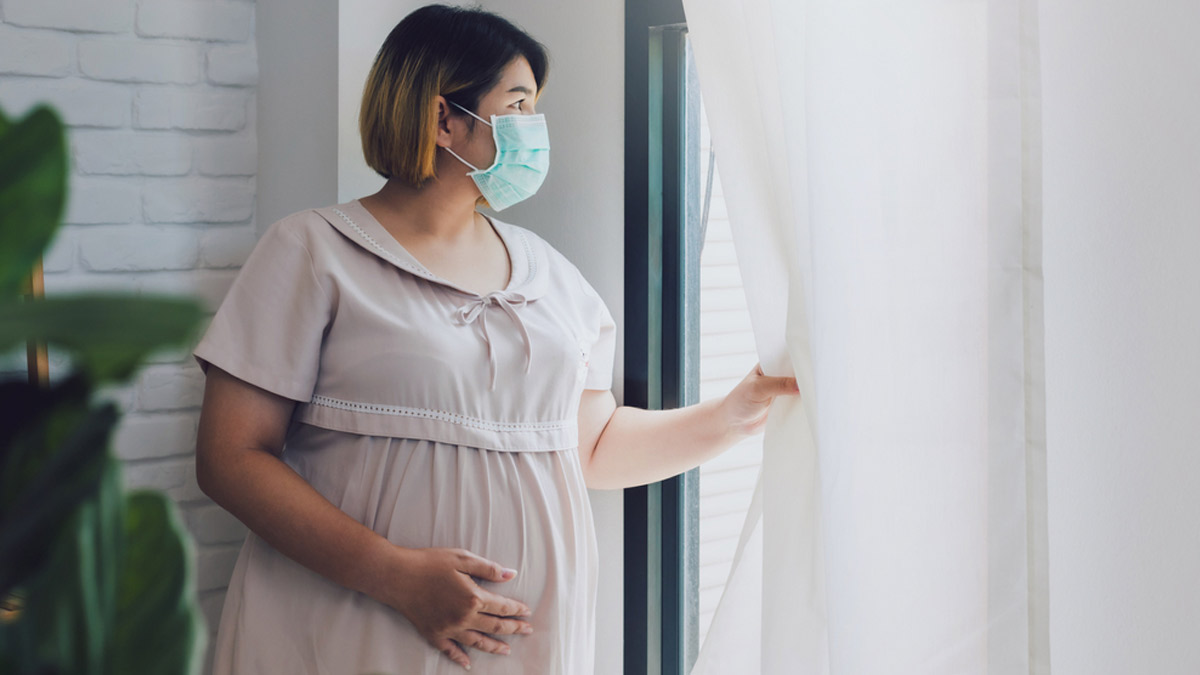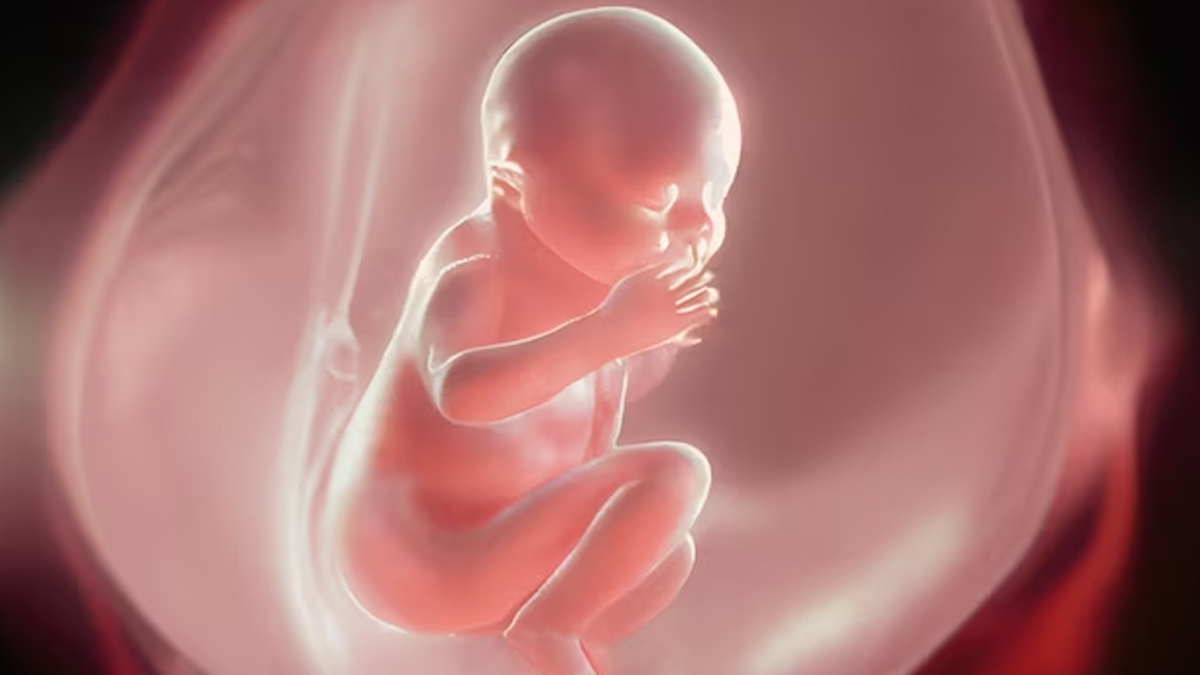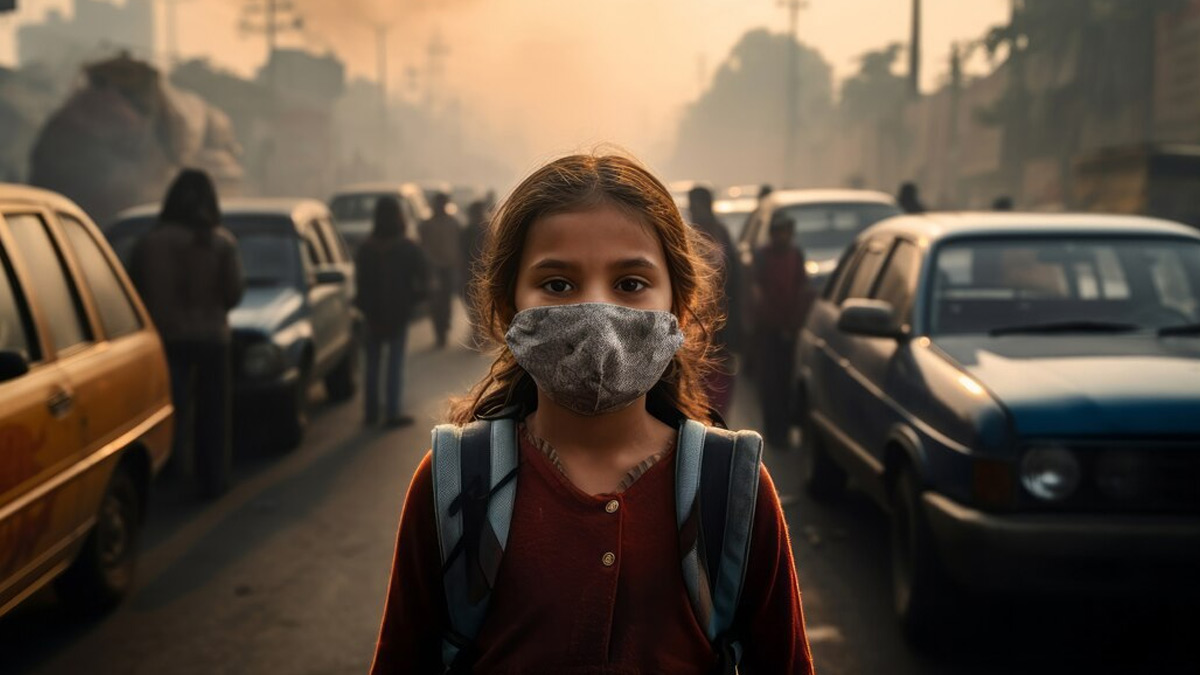
Have you ever wondered if the polluted air inhaled by a pregnant woman can harm her baby? Air pollution is a rising healthcare concern not only affects adults but even infants and foetuses. To understand this in detail, we spoke to Dr Karthika Reddy Byreddy, Consultant Obstetrician and Gynaecologist, Yashoda Hospitals, Hyderabad, who explained the detrimental effects of air pollution on pregnant women and children.
Impact Of Air Pollution On Pregnant Women And Infants

According to a study published in Cureus, exposure to air pollution during the critical first 1,000 days of life, spanning from conception to the second year, holds significant implications for the long-term health of children. Dr Byreddy added, “This period is pivotal for the development of both the mother and the foetus.”
Metal buildup in the placenta stands out as a concerning factor, restricting foetal growth and leading to adverse outcomes, such as:
- Preterm birth
- Limited foetal growth
- Increased gestational diabetes
- Shorter telomere length
- Higher uterine vascular resistance
- Reduced chromosomal stability
- Negative effect on placental vascularisation (process by which blood vessels develop and supply oxygen and nutrients to the placenta)
Vulnerability of the Developing Foetus
Dr Byreddy emphasises that exposure to pollutants during pregnancy can have lasting and detrimental effects, influencing the trajectory of a pregnancy negatively. He added, “To mitigate these risks, it becomes imperative to restrict exposure to air pollution, whether in open or enclosed spaces.”
“The foetus, in its developmental stage during pregnancy, is exceptionally vulnerable to environmental contaminants. Unfavourable pregnancy outcomes, including stillbirth and spontaneous abortion, are linked to exposure to air pollution”, said Dr Byreddy.
Impact on Metabolites and Pathways
Dr Byreddy highlighted, “Air pollution's impact on metabolites and metabolic pathways in the mother suggests their role as mediators in pathways leading to adverse pregnancy and birth outcomes. Macro-toxins are implicated in causing lower birth weight, neonatal jaundice, foetal death, maternal anaemia, and other undesirable effects.”
Also Read: Pollution Can Cause Dry Eyes: Here's How to Protect Your Eyes

Impact Of Air Pollution On Children
According to a review published in Science Direct, children are among the most vulnerable populations to air pollution because of their early developmental phases, even while they are still in the womb. Children greatly increase their exposure dose when they spend more time outside and breathe more air per kilogram of body weight. Furthermore, as they live longer, they will have more time to experience health issues brought on by earlier exposures.
Prenatal Exposure and Additional Risks
“Prenatal air pollution exposure is also associated with epigenetic changes and nitrosative stress (a condition leading to oxidative damage and cellular dysfunction) in the placenta. Pregnant women who smoke or use tobacco face an elevated risk of obstetric issues and adverse consequences for the unborn child when exposed to air pollution in closed spaces”, said Dr Byreddy.

Long-Term Respiratory Health Impact
“Early environmental exposures during pregnancy, coupled with genetic predispositions, leave a lasting imprint on respiratory health, potentially leading to chronic obstructive respiratory diseases like asthma and chronic obstructive pulmonary disease”, emphasised Dr Byreddy.
Bottomline
Dr Byreddy concluded, “Given these concerns, it is advised that pregnant women take measures to limit or prevent exposure to air pollution, particularly during the early and late stages of pregnancy. Policies emphasising the reduction of maternal exposure should be prioritised to safeguard the health of both mothers and children.”
[Disclaimer: This article contains information provided by a registered healthcare professional and is for informational purposes. Consult with your expert if you suspect any health problems due to air pollution.]







